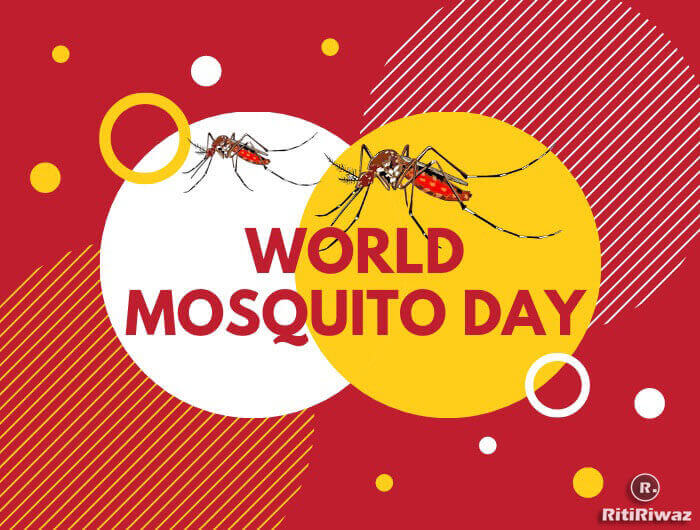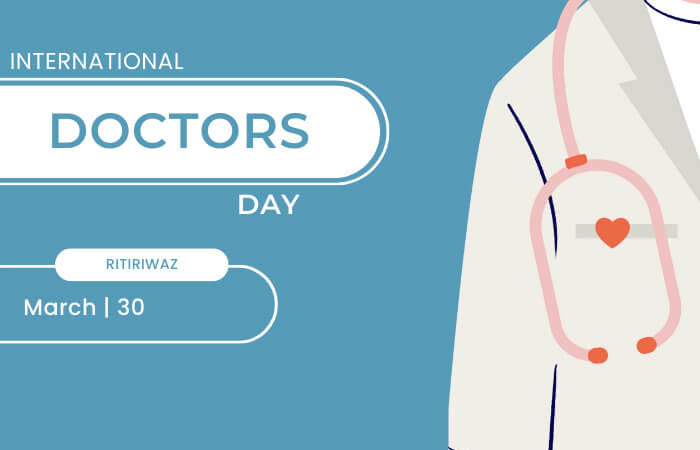World Mosquito Day – 20 August

World Mosquito Day is observed on 20 August annually to commemorate the discovery that malaria is caused by the female anopheles mosquito. His work was instrumental in shedding light on how best to prevent this deadly disease, a fight we continue to this day.
On this day in 1897, the link between mosquitoes and the transmission of malaria was discovered by British doctor Sir Ronald Ross. Ross also identified that the female Anopheles mosquito transmits the disease. In 1902, Ross was awarded the Nobel Prize in Physiology and Medicine for his discovery. Through his work, Ross documented the lifecycle of the malarial parasite and the role played by mosquitoes.
There are more than three thousand species of mosquito, but only three are responsible for the spread of these diseases. Anopheles mosquitoes are known to carry malaria. Culex mosquitoes carry encephalitis, filariasis, and the West Nile virus. Aedes mosquito carries yellow fever, dengue, and encephalitis.
Mosquitos remain one of the deadliest animals on Earth, posing a threat to half the world’s population through the transmission of malaria, and claiming the life of a child every two minutes. Mosquito-borne diseases are those that are transmitted to people through the bite of an infected mosquito. The diseases spread by mosquitoes can be caused by a parasite, as in the case of malaria, or by viruses, as is the case for Zika fever and numerous others. Warming climates and increased global travel have helped previously obscure viruses like Zika and chikungunya gain footholds across the globe.
No other species, including our own, is responsible for the loss of as many human lives each year as mosquitoes are. Humans murder around 475,000 other people each year. Snakes kill around 50,000, while dogs (mainly from rabies transmission) claim another 25,000 lives. Some of the most feared animals (sharks, wolves) kill fewer than 10.
What are Mosquitoes
Mosquitoes are flies and their name is derived from the Spanish word “mosca’ which means fly. Like all flies, mosquitoes belong to the Order Diptera, which means they have two (di-) wings (-ptera). And, like all flies, mosquitoes are insects. Mosquitoes and other flies have four stages in their life cycle: egg, larva, pupa, and adult. Since a mosquito’s appearance changes with each stage—a young mosquito looks very different from an adult—the cycle is called complete metamorphosis.
During the first three stages, mosquitoes live in still water. As long as the water is not flowing you can find mosquitoes—on the edges of ponds, in fresh- and salt-water marshes, in permanent swamps, temporary
pools, floodwaters – even water-filled containers.
Suggested Read: World Malaria Day
10 Facts about Mosquitoes
-
Mosquitoes are the deadliest animal on earth.
-
An adult Mosquitoes can live as long as 5 months.
-
A Mosquito wing beats from 300 to 600 times per second.
-
Mosquitoes can fly about 1 to 1.5 miles per hour.
-
The average mosquito takes in about 5-millionths of a liter of blood during feeding.
-
A full moon increased mosquito activity by 500% in one study.
-
A mosquito can smell Carbon Dioxide you exhale from about 60-75ft away.
-
Mosquitoes feed on liquids only like plant juices such as flower nectar and fruit juices, only females take blood. They need the protein in the blood for their eggs.
-
Dark clothing has been shown to attract some species of mosquitoes more than lighter colored clothing.
-
Mosquitoes need water to breed but not much
What Are Mosquito Bites?
A mosquito bite is a red, itchy bump you get when a mosquito bites your skin and its spit gets into your blood. Saliva from a mosquito triggers an allergic reaction that causes the area of the bite to become red, itchy, and swollen.
Most people have had mosquito bites at some time in their life. Usually, you swat a mosquito away and cope with the unpleasant but temporary itch. But some mosquito bites can spread viruses and cause serious diseases.
Mosquito bite signs include:
-
A puffy, white, and reddish bump appears a few minutes after the bite.
-
A hard, itchy, reddish-brown bump, or multiple bumps, appearing a day or so after the bite or bites.
-
Small blisters instead of hard bumps.
-
Dark spots that look like bruises.
Prevention Mosquito bite
-
Replace all stagnant water at least once a week.
-
Remove trash around any standing water. Mosquitos lay eggs in and reproduce in stand water.
-
Keep water in pools and landscaping moving.
-
Wear long sleeves and pants. Create a barrier to mosquito bites by covering up, or wear light-colored clothing.
-
When sleeping outdoors or in areas where mosquito populations are heavy, surround your bed with “mosquito” netting.
-
Screen windows, doors, and other openings with fine mesh.
-
Avoid going outdoors at night.
-
Use insect repellent on exposed skin anytime you’re around mosquitoes. Insect repellent doesn’t kill the mosquitoes. It just disorients them and they look elsewhere for food.
On this day and throughout the year, protect yourself from mosquito bites in your home and while traveling. Let us recommit to driving resources and bringing innovations to market to end the deadly bite of a mosquito once and for all.
Suggested Read: Important Days In August






